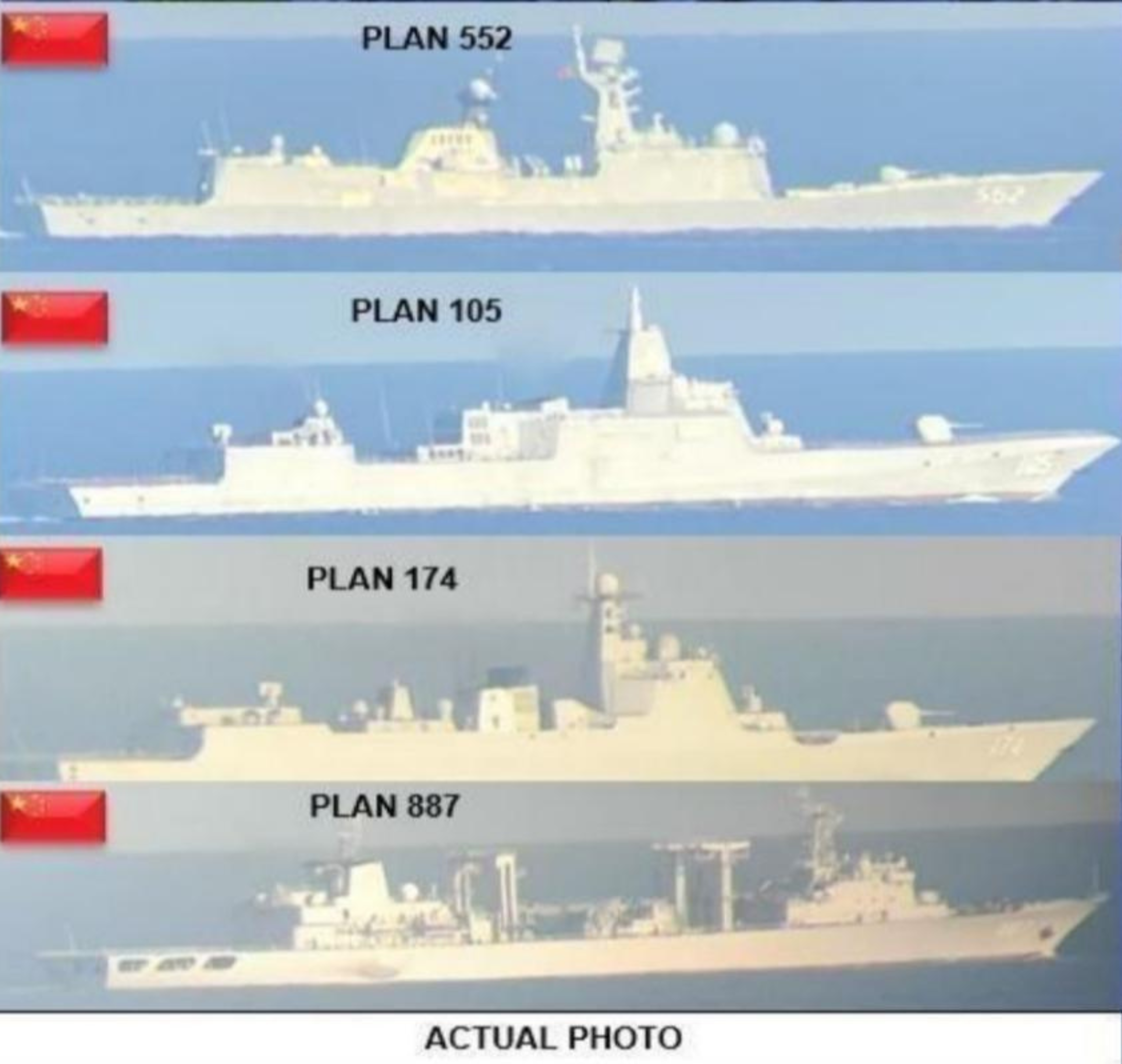LAOAG CITY, Philippines — While the Philippine military deemed the presence of four Chinese warships in the Sibutu Strait as “innocent passage,” a security expert on Tuesday pointed out that Beijing should have notified Manila about it.
Chester Cabalza, president and founder of Manila-based think tank International Development and Security Cooperation, told INQUIRER.net that this is due to the fact that Sibutu, which refers to the narrow channel that separates Sulu Archipelago and Borneo, remains part of the nation’s internal waters.
Innocent passage, but…
According to Armed Forces of the Philippines (AFP) spokesperson Col. Francel Margareth Padilla, on May 2, the People’s Liberation Army-Navy (PLAN) with bow numbers 552, 105, 174, and 887 traversed the Sibutu Passage before heading to Palawan.
The PLAN’s fleet was out of the country’s exclusive economic zone as of May 3, Padilla said.
Padilla also said the presence of Chinese warships constitutes “innocent passage.”
According to Article 19 of the United Nations Convention on the Law of the Sea (Unclos), a passage may be deemed innocent “so long as it is not prejudicial to the peace, good order or security of the coastal State.”
A Navy spokesperson also echoed this Unclos provision on other country’s right of innocent passage, saying the presence of other country’s ships in Sibutu Passage is usual.
“Foreign vessels can invoke the right to innocent passage through our territorial Seas for as long as their passage is not prejudicial to the peace, good order, or security of our country,” Navy spokesperson Commander John Percie Alcos told INQUIRER.net when asked if China already asked permission to traverse Sibutu Passage.
“It is not unusual for foreign ships, commercial and military, from other flag states to pass through the Sibutu Passage,” Alcos further said.
Consent
Cabalza, however, noted that Beijing should have asked the consent of Manila before passing through.
“Since these are warships, China must call the Philippine hotlines that they’re passing through our sea lanes,” Cabalza told INQUIRER.net in a message.
“There must be a consent from the Philippine government on its end and to other relevant maritime agencies since these gray ships are passing through our internal waters and territory,” he also pointed out.
Law on archipelagic sea lanes needed now
Cabalza said the latest development in Sibutu Passage shows the urgency of the passage of the Archipelagic Sea Lanes bill.
“Actually, Sibutu Passage is one of the sea lanes considered for the proposed Sea Lanes Act to legitimize the innocent passage of foreign ships passing through the internal waters and the exclusive economic zone of the Philippines,” Cabalza said.
The House of Representatives recently passed House Bill No. 9034 or the proposed Act Establishing the Archipelagic Sea Lanes in Philippine Archipelagic Waters.
This bill provides that foreign ships and aircraft are allowed to pass through the designated sea lanes as quickly as possible for the sole purpose of “continuous, expeditious and unobstructed transit” while being directed to refrain from using any threat or force that will go against the “sovereignty, territorial integrity or political independence of the Republic of the Philippines.”
However, the bill’s counterpart in the Senate is still pending before the upper chamber’s panel.
“Hopefully, the Philippine Congress will fast track the approval and promulgation of this important domestic maritime law needed to operationalize the commercial access and innocent passage of our sea lanes to foreign and military vessels,” Cabalza said.
